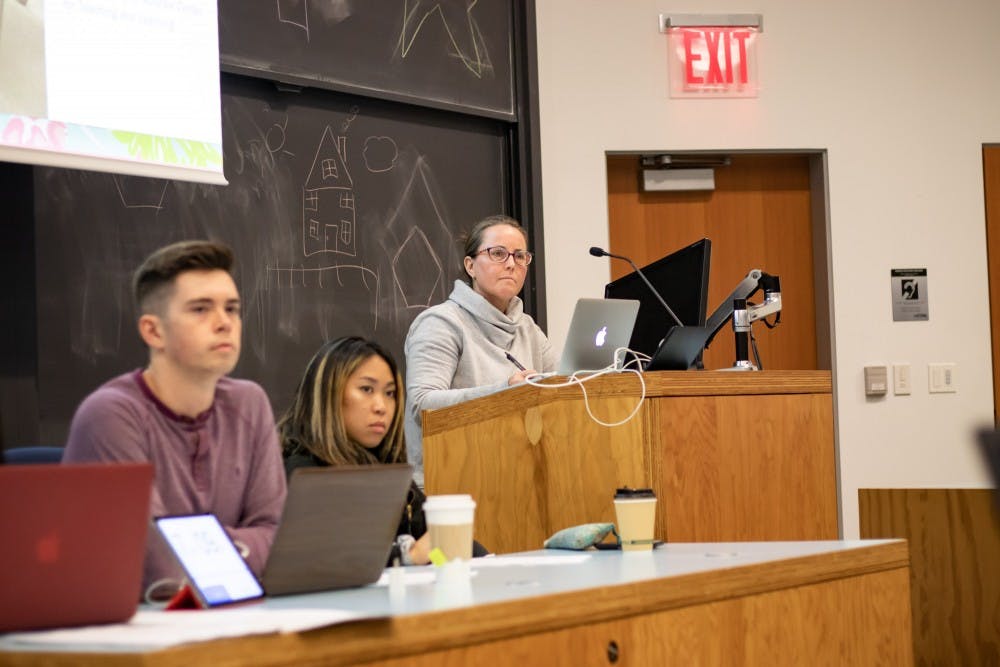Improvements to learning spaces and Honor Committee confirmations were on the discussion table in the Undergraduate Student Government Senate meeting on Oct. 21.
Associate Dean of the College Rebecca Graves-Bayazitoglu discussed renovations to classrooms and the Learning Spaces Initiative — a plan to put almost 240 classrooms on a cyclical five year renovation schedule. The objectives are to modernize technology and allow for more active learning on campus.
“In terms of pedagogy, it’s a move from what’s called the sage on the stage, which is exactly what it sounds like — the professor professing — to the guide on the side,” she said.
Graves-Bayazitoglu specifically referenced a new classroom in Green Hall with movable whiteboards and user-friendly technology.
“It’s the best classroom ever,” said Class of 2020 Senator Brad Spicher. “The way the desks and chairs are all arranged …. You can set them up wherever you like. It makes paying attention and having discussion a lot easier.”
According to Graves-Bayazitoglu, further renovations will include switching from analog to digital and retrofitting old buildings with up-to-date technology. Referencing student concerns outlined in a recent Daily Princetonian Opinion piece, she noted the chairs in McCosh 50 are also slated to be redone. The renovations “represent a huge investment on the part of the University” due to the University’s high classroom to student ratio. Because of the precept system and the diversity of course offerings, the University requires many different types of classrooms to best fit each class.
“From the outside analysts think its unwieldy but actually it’s essential to our mission as an institution,” said Graves-Bayazitoglu.
The next main items of business were the Honor Committee confirmations. Out of 11 applicants, Wells Carson ’22 and Leland Domaratzky ’22 were chosen and confirmed to fill two empty spots on the committee.

Domaratzky explained how his background, coming from a school with a weak honor code, drove him to apply to the committee.
“I have a lot of friends who cheated when I was a freshman [in high school], and I engaged in something that I now know was probably not right, that probably did violate the honor code,” he said. “So I think I have the perspective, I understand why people cheat. I think I can show empathy that way, but I also now know why the honor code is so important.”
Carson said that part of the reason he chose to come to Princeton was because of its robust honor code. Citing his desire to become a part of the community that helped him make his choice, he said: “When the people who are moderating the committee are the ones who are the most serious about it, then I think other freshmen will help to maintain our honor code well.”
The Senate discussed concerns with diversity in the applicant pool, specifically in regards to the A.B./B.S.E. breakdown. Although the Honor Committee attempted to diversify its applicant pool this year by removing the letter of recommendation requirement and reaching out to the Carl A. Fields Center for Equality and Cultural Understanding, LGBT center, freshman seminar professors, writing seminar professors, and varsity sport coaches, the vast majority of this year’s applicants were prospective A.B. students.

According to Honor Committee Chair Elizabeth Haile ’19, in the future, the Committee plans to reach out to RCAs, OA, and CA leaders to further recruitment through individual outreach.
The Senate meeting was held in Lewis 138 at 8 p.m.








